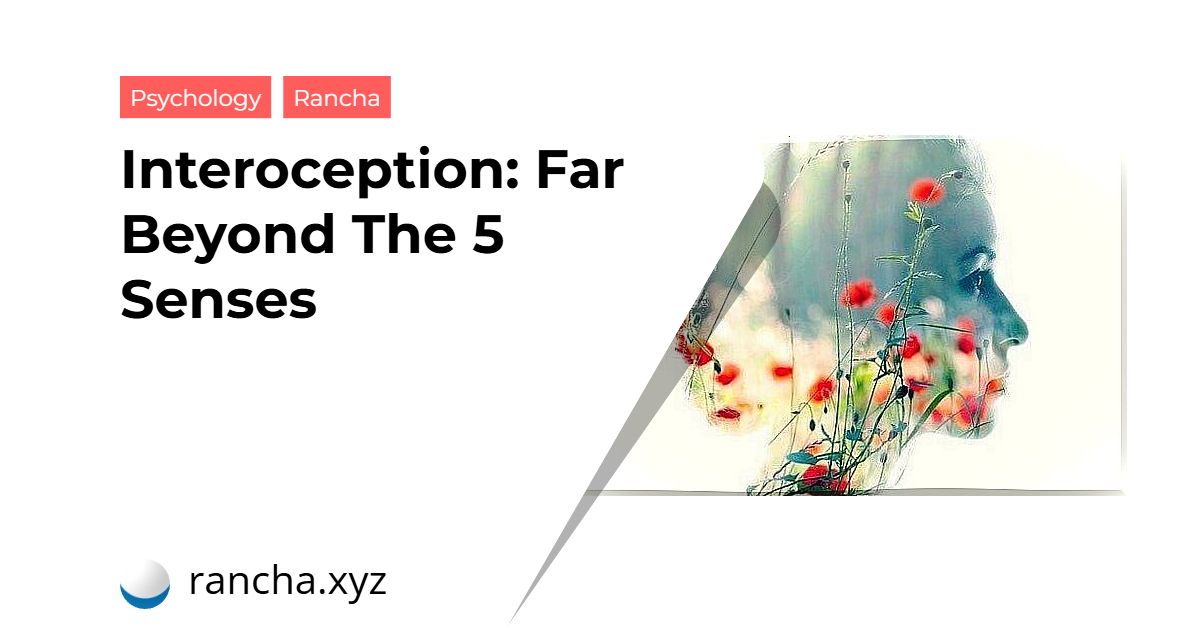Interoception is the ability to recognize the stimuli and sensations our body sends us. The art of inhabiting and understanding this beautiful physical envelope full of connections, receptors, cells and delicate tissues. He sends us the most varied messages, the ones we don’t always hear. However, practices like mindfulness can help us do this.
There are those who say that, deep down, we should be grateful for not having this sense so well developed or perfectly tuned. It can’t be pleasant for anyone to hear how a white blood cell faces an infectious agent, how our gastric juices are released, or what a neuron sounds like when it dies, for example.
However, it must be said that it is not necessary to go to extremes to appreciate what interoception gives us. So, and just as an example, something that was demonstrated in 2011, thanks to a study carried out by psychologist Hirokata Fukushima, is that this function is closely related to empathy.
When we connect with someone to understand their emotions, needs or concerns, our bodies react in a particular way.
The affective states of others are like stimuli to which we are almost never indifferent. The brain and heart react, and sometimes even the skin.
Understanding in a deeper way the mysteries of the interoceptive function will allow us to know a little more about how the body and the mind are related. Still, and not least, it would also help us to take better care of our health. We would understand these indicators that sometimes tell us that something is not going well inside of us.

The interception in our daily life
People dedicate a good part of their time to self-care. They attend to their hygiene, eat balanced, exercise, like to look good, choose clothes according to their style, comb their hair, make up, take care of their skin and seek a restful night’s rest.
As curious as it may seem, there is something we overlook in this routine: listening to our own body. We neglect what he tells us when he sends us, for example, a message of pain. Tension built up in the back of the neck, a headache that pounds our foreheads insistently, etc. Our minds are stressed and the whole organism reacts to this destabilizing emotion. However, we don’t give it the attention it deserves.
Athletes usually have a well-developed sense of interoception. Good athletes are able to discern when a physical sensation is normal or pathological. They know when the pain in one of the knees can be due to a simple overload or an indication of muscle damage.
Sometimes they are able to deal with pain for hours to reach the goal or give their best throughout a game. The mind-body connection presents an effective alliance to improve our performance when we need it.

Interoception and the insular cortex
Interoception has been extensively studied in the context of the psychology of emotions, learning and biofeedback. Thus, in recent years it is common to find new works to delve deeper into this theme. Such a special and, at the same time, important sense of the human being.
One aspect that is interesting to bear in mind is that basic processes such as thirst, hunger, sleep or the feeling of cold or heat are messages that our sense of interoception sends us. These are mechanisms that guarantee our survival and of which we must be aware. Others, on the other hand, are more subtle and go unnoticed.
If we ask ourselves what structure in the brain regulates these processes, we can refer to a paper published in 2012. It is the insular cortex, a very deep area located on the lateral surface of the brain. It regulates processes such as awareness of our emotions and bodily sensations.
The insular cortex is a control center. In it, the always interesting and unknown union between mind and body is evident…

Mindfulness and Interception
One way to become aware of our sense of interoception is through mindfulness.
This practice based on meditation and mindfulness allows us to connect with our physical sensations. Thus, we can relate much better to the self and understand our mind. In addition, we also understand our needs and how the environment and its processes impact the body.
Being able to hear and discern each of the body’s signals is to invest in health and quality of life. We would manage stress much better and anticipate indicators of possible illnesses (such as high blood pressure). Also, we could be more productive knowing our limits.
We would be aware that we are not machines, but a wonderful delicate system, formed by cells, tissues and emotions…
 rancha.xyz Be free to choose their own route to self-knowledge, health and balance of body and soul.
rancha.xyz Be free to choose their own route to self-knowledge, health and balance of body and soul.




